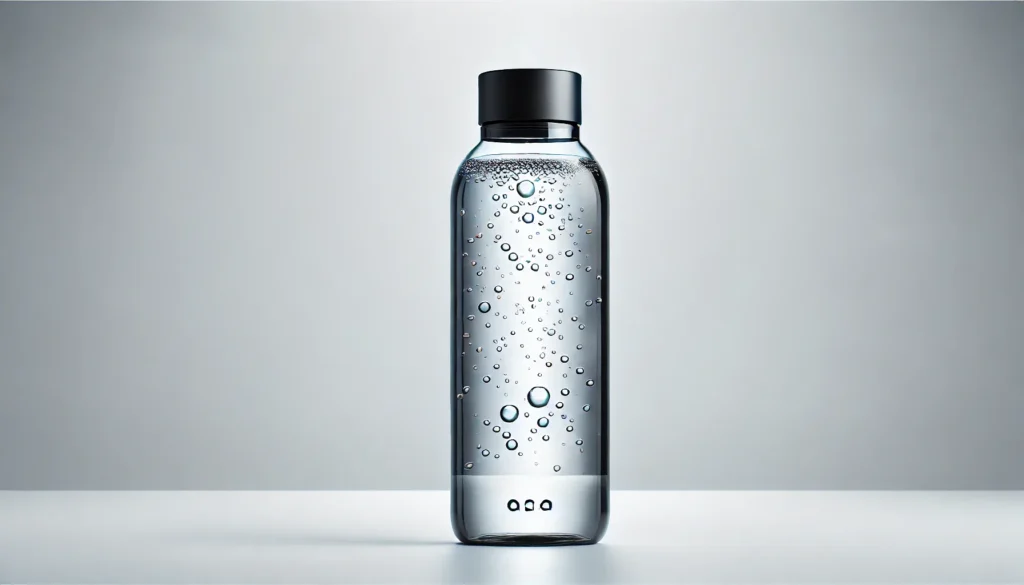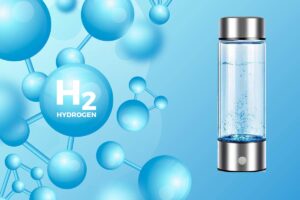Hydrogen water has garnered significant attention in recent years for its potential antioxidant and anti-inflammatory benefits. As the popularity of hydrogen water grows, many people wonder about the best PPM (parts per million) level for therapeutic effects. Understanding the optimal hydrogen concentration is crucial for maximizing benefits while ensuring safety and practicality.
What Does PPM Mean in Hydrogen Water?
PPM stands for parts per million, a measurement that indicates the concentration of molecular hydrogen (H₂) dissolved in water. In the context of hydrogen water:
- 1 ppm means that there is 1 milligram of hydrogen gas dissolved in 1 liter of water.
- Higher PPM levels suggest a greater concentration of dissolved hydrogen, potentially enhancing its therapeutic effects.
Hydrogen water typically ranges from 0.5 ppm to 3.0 ppm in commercially available products, although some laboratory-grade water can reach concentrations as high as 4–5 ppm.
Therapeutic Benefits of Hydrogen Water
Hydrogen water offers multiple health benefits due to its unique properties:
- Selective Antioxidant Action: Hydrogen selectively neutralizes harmful free radicals, such as hydroxyl radicals, without affecting beneficial reactive oxygen species (ROS).
- Anti-Inflammatory Effects: Hydrogen water has been shown to reduce chronic inflammation by modulating signaling pathways like NF-κB, which regulates pro-inflammatory cytokines.
- Mitochondrial Support: Hydrogen molecules penetrate mitochondria to reduce oxidative stress, improving cellular energy production and metabolic health.
- Exercise Recovery: Hydrogen water can decrease exercise-induced oxidative stress and inflammation, helping athletes recover faster.
Determining the ideal PPM level is key to achieving these benefits efficiently.
Recommended PPM Levels for Therapeutic Effects
Scientific studies and clinical trials suggest the following ranges:
| PPM Level | Use Case | Notes |
|---|---|---|
| 0.5–1.0 ppm | Basic antioxidant support | Suitable for general wellness and daily hydration |
| 1.0–1.6 ppm | Moderate therapeutic effect | Often used in clinical studies for oxidative stress and inflammation |
| 1.6–2.5 ppm | Enhanced therapeutic effect | Recommended for targeted interventions, e.g., recovery from exercise or metabolic support |
| 2.5–3.0 ppm | High therapeutic potential | Less common; typically used under supervision or with specialized equipment |
Most research indicates that 1.0–1.6 ppm provides sufficient therapeutic benefits for everyday use without the need for excessively high concentrations. Concentrations above 2.0 ppm may offer additional benefits but can be harder to maintain in bottled water due to hydrogen escaping over time.
Factors Affecting Hydrogen Water PPM
The effectiveness of hydrogen water depends not only on the initial PPM but also on factors that influence its stability:
- Storage Conditions: Hydrogen gas escapes quickly from water exposed to air or light. Sealed, opaque containers help maintain PPM.
- Temperature: Cold water retains hydrogen better than warm water. Avoid heating hydrogen water above 40°C (104°F).
- Duration: Hydrogen concentration diminishes over time. Consuming water soon after production ensures optimal PPM.
- Water Generation Method: Hydrogen-generating machines typically produce higher and more stable PPM levels than tablets or pre-packaged bottles.
Optimizing these factors ensures that therapeutic benefits are fully realized.
Safety Considerations
Hydrogen water is generally considered safe, even at higher PPM levels. It is non-toxic and naturally produced in small amounts in the human gut. However, certain precautions should be observed:
- Use hydrogen water from reliable sources to ensure accurate PPM.
- Avoid heating above recommended temperatures, which can cause hydrogen loss.
- While no adverse effects have been reported, extremely high concentrations above 3 ppm have limited human study data.
For those concerned about long-term consumption, understanding dosage and PPM is crucial. Studies evaluating Is Hydrogen Water Safe for Long-Term Consumption? indicate that daily intake of 1–2 liters with PPM levels of 1–2 is both safe and effective.
How to Maximize Therapeutic Effects
To ensure you are getting the best results from hydrogen water, consider the following:
- Check PPM Levels: Look for products that clearly indicate the hydrogen concentration.
- Consume Fresh: Drink hydrogen water soon after production to maximize dissolved H₂ content.
- Use Sealed Containers: Prevent hydrogen escape by using airtight bottles or pouches.
- Pair with Healthy Habits: Combining hydrogen water with a balanced diet, regular exercise, and adequate sleep enhances its effectiveness.
- Consistency is Key: Regular consumption over weeks or months is more effective than occasional use.
Comparing Hydrogen Water PPM to Other Antioxidants
Unlike traditional antioxidants, hydrogen water:
- Targets only harmful free radicals while preserving essential ROS signaling.
- Penetrates cells and mitochondria, providing more direct therapeutic effects.
- Can be consumed daily without the risks associated with high-dose vitamin supplements.
By maintaining optimal PPM levels, hydrogen water offers a sustainable and safe method to support cellular health over the long term.
FAQs
Q1: What is the best PPM for everyday wellness?
1.0–1.6 ppm is sufficient for daily antioxidant support and overall health.
Q2: Can higher PPM levels be harmful?
No harmful effects have been documented, but extremely high concentrations above 3 ppm are less studied.
Q3: Does PPM affect how quickly benefits are felt?
Higher PPM levels may accelerate certain benefits, such as reducing exercise-induced oxidative stress, but most therapeutic effects are seen with moderate concentrations.
Q4: Can hydrogen water be used with medications or supplements?
Yes. Hydrogen water is generally compatible with most supplements and medications.
Q5: Is it safe for long-term use?
Yes. Research including Is Hydrogen Water Safe for Long-Term Consumption? supports daily intake of 1–2 liters at recommended PPM levels as safe and effective.
Conclusion
The best PPM level for therapeutic hydrogen water generally falls between 1.0–1.6 ppm for most users. This range provides significant antioxidant and anti-inflammatory benefits while being safe for long-term daily consumption. Higher concentrations may offer additional advantages but require careful storage and monitoring to maintain hydrogen levels.
By understanding PPM, storage, and consumption practices, individuals can maximize the health benefits of hydrogen water. Regular use, combined with a balanced lifestyle, ensures that hydrogen water serves as a safe and effective tool for oxidative stress reduction, inflammation control, and overall wellness.



